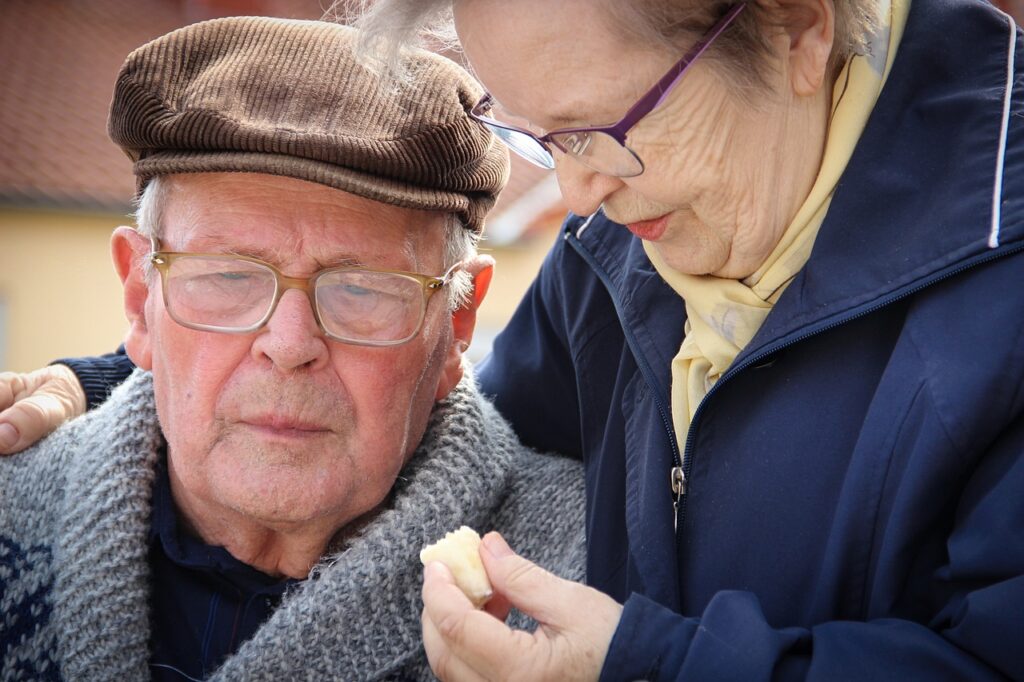Living with your elderly parents can bring both benefits and challenges. You get emotional support, share responsibilities, and may even receive financial assistance when they’re nearby.
However, health concerns, adjusting to different lifestyles, and the loss of independence can also be obstacles for you to handle.
If you’re considering this living arrangement, there are tips to make it successful and advice on how to prepare for this new dynamic. Let’s explore how to make this transition as smooth as possible.
Benefits of Living with Elderly Parents
Living with your elderly parents can bring you a real sense of companionship and support, which can really boost their overall well-being and emotional health. The bond you share in a multigenerational family setup can really deepen your relationships and create a strong support system for your aging parents.
This living situation allows for daily interactions that can bring you all closer together and help you understand each other better. As your parents age, the family dynamic might shift, but the core of love and care always stays strong.
Taking care of your elderly parents can teach you some important life lessons like empathy, patience, and the value of giving back. And in return, your parents feel safe and comforted knowing they’re surrounded by family who genuinely looks out for them.
By sharing experiences and memories, living together across generations can really tighten those family bonds and boost the emotional well-being of everyone involved.
1. Emotional Support
Providing emotional support to your elderly parents is crucial for their overall well-being and mental health. Building a bond of companionship and understanding will deepen your relationship and strengthen family ties.
Having meaningful conversations and genuinely listening to their stories can make them feel appreciated and connected to you. Showing empathy is key to understanding their feelings and needs, which can bring them comfort and reassurance. By openly discussing their worries and creating a supportive atmosphere, you can enhance their mental well-being and help them feel like they belong in the family. Sharing moments of happiness and laughter will create lasting memories and reinforce your familial support network.
2. Financial Assistance
Financial assistance plays a crucial role in supporting your aging parents and ensuring their well-being. Sharing financial responsibilities within your family can ease the burden of aging-related costs and lifestyle adjustments.
This collaboration among family members not only provides a more sustainable financial support system but also fosters a sense of unity and shared responsibility. It allows for a more holistic approach to caregiving, where different family members can contribute according to their means, thereby lessening the financial strain on any one individual. This shared financial responsibility can lead to improved communication and understanding within your family, as decisions regarding eldercare become collective rather than falling solely on one individual’s shoulders.
3. Shared Responsibilities
When you and your family members team up to share the caregiving responsibilities for your aging parents, it not only lightens the load on any one person but also builds a strong support system where everyone pitches in. This teamwork guarantees that your elderly loved ones receive all-around care and attention, covering everything from medical necessities to simply being there for companionship.
To give your aging parents the best care possible, it’s crucial to have open communication and coordination among family members. This way, you can provide consistent care and address the changing needs that come with aging. By coming together, you and your family can experience those special, heartwarming moments of connection that arise from offering assistance and love to your elderly parents.
Challenges of Living with Elderly Parents

When you’re living with elderly parents, you’re in for a mix of benefits and challenges. Juggling responsibilities, dealing with health issues, and adapting to lifestyle changes are all part of the eldercare journey.
Dealing with health problems like chronic illnesses or mobility issues can really shake up your daily routine and caregiving duties. And don’t forget about keeping track of medical appointments, treatments, and medications – that’s a whole other layer of things to stay on top of.
Adjusting your lifestyle to meet the evolving needs of your aging parents might mean facing financial pressures or having to make changes to your home. These shifts can also influence the parent-child dynamic within your family, as everyone adjusts to new roles and relationships.
It’s not easy finding that sweet spot between caregiving, making time for yourself, and nurturing a positive relationship with your aging parents. It can take a toll on you emotionally, but it’s crucial for the well-being of your entire family.
1. Health Concerns
When you’re taking care of your elderly parents, health is a big deal. You’ve got to stay on top of their medical needs and make sure they’re staying healthy. Keeping your parents healthy is super important for keeping them happy and well.
So, make sure you’re scheduling those regular medical check-ups and talking to healthcare pros. It’s all about keeping an eye on vital signs, medications, and any health issues that pop up. That’s the key to making sure your aging parents are doing well.
To help your parents age healthily, you’ll want to get them moving, eating right, and sticking to exercise routines that suit their abilities. Taking a well-rounded approach to caring for your parents will help you manage their health effectively and ensure they have a positive and fulfilling aging journey.
2. Adjusting to Different Lifestyles
Adapting to different lifestyles within a multigenerational household can be tricky when it comes to maintaining independence and getting used to new routines. To keep the family harmony intact, it’s crucial to understand and support the lifestyle adjustments of the older generation.
If you acknowledge and respect the changing needs and preferences of your aging parents, you can create a supportive atmosphere that helps them stay independent and well. When you encourage open communication and involve the elders in decision-making, they feel enableed and in control.
Being flexible with daily routines and arrangements, like offering modified living spaces or using assistive technologies, can make life more comfortable and convenient for your elderly loved ones. In the end, embracing lifestyle changes with kindness and patience can strengthen the family bond and enhance the quality of life for everyone.
3. Loss of Independence
Living with elderly parents poses some significant challenges, especially when it comes to their independence. You need to be there to support your aging parents through this tough time and understand how getting older can affect their ability to do things on their own.
Regarding talking about this touchy subject, you’ve got to approach it with a lot of empathy and sensitivity. Losing independence can be really hard for seniors, and it might bring up all sorts of tough emotions like frustration, feeling exposed, and like they’re losing control.
As their adult child, you’ve got to find that sweet spot between helping them out and still letting them make their own choices. Keeping those lines of communication open, involving them in decisions, and getting a bit creative with living arrangements can all help them keep their dignity and sense of independence intact.
Tips for a Successful Living Arrangement with Elderly Parents

To create a successful living arrangement with your elderly parents, you need to focus on fostering companionship, prioritizing relationships, practicing patience, and understanding the importance of quality family time. Implementing effective coping strategies is crucial for maintaining a harmonious environment.
Make sure to encourage open communication among family members to promote understanding and address any concerns that may arise. Set aside dedicated time for bonding activities that cater to everyone’s interests, like family game nights or shared hobbies. Celebrate milestones and achievements together to create lasting memories and strengthen the familial bond. Practice active listening to show empathy and respect for each other’s viewpoints, enhancing mutual understanding. Embrace flexibility and adaptability in routines to accommodate changing needs and preferences as your family navigates the transitions of aging gracefully.
1. Establish Boundaries
Establishing clear boundaries is key to maintaining family harmony and building positive elder relationships. You should prioritize effective communication and mutual respect to set boundaries that encourage understanding and support.
Regarding eldercare, it’s important to have clearly defined boundaries to avoid misunderstandings and conflicts, ensuring both the elderly parents and their adult children feel respected and valued. A great way to establish these boundaries is by starting open and honest conversations about everyone’s needs, expectations, and limits. By actively listening and recognizing individual preferences, families can create a safe environment where parental autonomy is upheld, while also fostering healthy interactions rooted in understanding and compassion.
2. Communicate Effectively
To have a successful living arrangement with your elderly parents, effective communication is key. This means understanding their needs and building strong parent-child relationships. Clear and compassionate communication is crucial for providing the best support for your elderly loved ones.
When you engage in open dialogue and really listen to your parent’s concerns, you create a safe space for them to share their emotions and preferences. Effective communication helps you identify any changes in their health needs and ensures that the right care plans are put in place quickly. By having honest conversations, you can build trust and strengthen the bond between you and your parents, offering emotional support and improving their overall well-being. To make your interactions more meaningful, try using empathy, paying attention to non-verbal cues, and validating their feelings. These strategies can go a long way in enhancing the quality of life for your elderly parents.
3. Seek Outside Support
When you’re navigating the challenges of eldercare, reaching out for help can make a world of difference. Whether it’s tapping into professional caregiving services or leaning on community resources, these external supports can be a game-changer in managing the complexities of caring for an elderly loved one. By seeking emotional support and practical guidance, you can lighten the load of adjusting to the new demands of eldercare.
These outside resources not only provide hands-on assistance but also free you up to focus on what truly matters – fostering deep connections and ensuring the well-being of your aging family member. Professional caregivers bring a wealth of knowledge and skills to the table, offering specialized care that caters to the unique needs of seniors, giving them a sense of security and comfort. Community resources like support groups and day programs create opportunities for social interaction and mental stimulation, enriching the lives of older adults and enhancing their overall quality of life.
How to Prepare for Living with Elderly Parents

When getting ready to live with elderly parents, you need to tackle a few key tasks. First off, make sure your home is set up for their needs by installing things like grab bars in the bathroom, widening doorways for wheelchairs, and removing tripping hazards.
Next up, dive into the financial side of things. Get a handle on their insurance coverage, set up a budget for their expenses, and start thinking about long-term care options. And don’t forget about the legal stuff – it might be time to draw up advance directives, power of attorney documents, and update their will.
Lastly, gather the family around for some heart-to-heart talks. Figure out who’s going to take on what caregiving duties to make sure everyone’s on the same page and your aging parents get the care they need.
1. Make Necessary Home Modifications
Adapting your living environment through necessary home modifications is crucial when accommodating the changing needs of your elderly parents. It’s all about creating a safe and accessible space that supports their lifestyle adjustments and promotes independence and well-being.
To make life easier for your aging loved ones, consider thoughtful adjustments like installing grab bars in the bathroom, ramps for easier mobility, and ensuring there’s adequate lighting throughout the house. These small changes can help reduce the risk of falls and enhance overall comfort.
Simple tweaks, such as rearranging furniture to create clear pathways and keeping commonly used items within easy reach, can make a big difference in your seniors’ daily living experience.
Don’t forget to factor in proper ventilation and maintaining a clutter-free environment. These considerations can help your elderly family members feel more secure and at peace in their home.
2. Discuss Finances and Legal Matters
When you’re getting ready to live with elderly parents, it’s important to have those open conversations about finances and legal stuff. Talking about topics like elderly care, family financial support, and who’s responsible for what when it comes to taking care of your parents can really help clear things up and make your caregiving arrangements run smoothly.
By openly talking about money matters and legal stuff, you and your family can figure out the best way to care for your aging loved ones. This means setting out your budget limits, sorting out legal documents like power of attorney, wills, and healthcare directives, and deciding who’s going to handle which caregiving roles.
Being transparent in these discussions can prevent any mix-ups or conflicts later on. It’ll also create a sense of responsibility and teamwork among family members involved in planning for your elderly parents’ care.
3. Create a Care Plan
Developing a comprehensive care plan is crucial for organizing your caregiving responsibilities and effectively managing your parent’s health. When you establish routines, allocate tasks, and prioritize elder care management, you’ll find yourself managing caregiving efficiently and making the most of your time with the elderly.
When you create a structured care plan, you can rest assured that every aspect of your loved one’s well-being is being looked after. This thoughtful plan helps you juggle different tasks, appointments, and medications, minimizing the risk of any oversight. It also improves coordination between family members and healthcare professionals, leading to better outcomes.
Practical caregiving strategies like setting clear goals, monitoring progress, and adjusting the plan when necessary are pivotal for successful eldercare. Effective time management and resource allocation further elevate the quality of care you provide, ensuring a positive and rewarding caregiving journey.

As a dedicated writer and martial art enthusiast, I have carved a unique niche where the pen and the sword truly coexist. With over a decade of experience, my journey has been one of constant evolution, blending the discipline and focus of martial arts with the creativity and depth of writing. My work spans various genres, including fiction, self-help, and martial arts instruction, offering readers insights not just into the arts themselves, but into the life lessons they embody.

